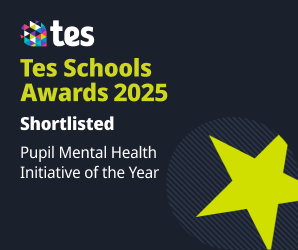Physical Education
Physical Education at The Academy develops students' knowledge, skills and understanding, so that they can perform with increasing competence and confidence in a range of physical activities. At SKA, we promote positive attitudes towards a healthy lifestyle which enables students to make wise, informed choices about physical activity throughout their lives.
Physical health and education in the MYP objectives
- Knowledge and understanding
- Planning for performance
- Applying and performing
- reflecting and improving performance
Co-Curricular And Enrichment Opportunities
The enrichment programme in the PE department is varied and fully supported by a number of members of staff at the Academy. As our numbers grow, so to do the sports clubs we are able to offer.
Years 7, 8 & 9
Years 7 & 8
Term 1
Activity: Basketball and Netball
MYP concepts: communication, movement, space and interaction.
Term 2
Activity: Gymnastics
MYP concepts: relationships, balance, refinement and interaction
Term 3
Activity: Health Related Exercise
MYP concepts: chance, choice, adaption and energy
Term 4
Activity: Badminton
MYP concepts: relationships, communication, perspective, function,
choice
Term 5
Activity: Rounders and Cricket
MYP concepts: relationships, communication, perspective, function,
choice
Term 6
Activity: Athletics
MYP concepts: change, energy, refinement and environment
Year 9
Term 1
Activity: Basketball and Netball
MYP concepts: communication, movement, space and interaction
GCSE PE preparation topic: warm ups and cool downs.
Term 2
Activity: Gymnastics
MYP concepts: relationships, balance, refinement and interaction
GCSE PE preparation topic: muscular system and movement
Term 3
Activity: Health Related Exercise
MYP concepts: change, choice, adaption and energy
GCSE PE preparation topic: training methods
Term 4
Activity: Badminton
MYP concepts: change, space, adaption and refinement
GCSE PE preparation topic: good and nutrition
Term 5
Activity: Rounders and Cricket
MYP concepts: relationships, communication, perspective, function, choice.
GCSE PE preparation topic: media media and sponsorship
Term 6
Activity: Athletics
MYP concepts: change, energy, refinement and environment
GCSE PE preparation topic: components and fitness
Years 10 & 11
Name of Assessment: GCSE PE
Examination Board: AQA
Specification Code: 8582
About the Course
This exciting specification for GCSE (9–1) Physical Education provides students with the knowledge and understanding of how to live a healthy and active lifestyle, enabling them to make informed choices about their own physical development.
So much more than ‘just’ playing sport.
Students will be assessed as a sports performer but also on their applied knowledge of Anatomy, physical training, use of data, psychology, socio-cultural influences and health and well-being.
The qualification is made up of two components. The non-exam assessment which is your practical performance in sport (40% of the overall qualification) and two written exam assessments (60% of the overall qualification). The non-exam element will be calculated from the student’s best performance in three sports, including at least one team sport and one individual sport. Students choosing GCSE PE must take part in competitive Sport.
Students need to be able to work well individually, in pairs and in groups/teams to ensure success and high attendance is essential.
Am I suitable for the course?
To score well on the non-exam element (40% overall) of the course, students need to take part in competitive sport on a regular basis and have a good level of physical fitness and determination. The written exam element (60% overall) will require good levels of literacy and contains a lot of scientific subject knowledge, particularly Biology.
Assessment
How is the qualification marked?
Through four key assessment objectives, that assesses students at different points of the creative process:
- Demonstrate, apply, and analyse knowledge and understanding of the factors that underpin performance and involvement in physical activity and sport.
- Demonstrate and apply relevant skills and techniques in physical activity and sport. Analyse and evaluate performance.
Future career opportunities
Study a subject that feeds the fitness industries which is now a major part of the economy. The UK now has over 9 million gym members, making the industry £4.4 billion in gym memberships alone. Many employers now actively seek those who have studied a practical subject like P.E, due to the skills that are developed, such as teamwork, leadership, communication, determination, strategical thinking and self-motivation.
Why would I want to study PE at GCSE?
Physical Education lends itself to a range of careers in sports and fitness as well as other industries that you may not have considered before. For example, did you know that many nutritionists, physical therapists and chiropractors have a degree in PE? Some careers that you could consider doing with PE include:
- Sports scientist
- Professional sportsperson
- Sports consultant/agent
- PE Teacher/Coach
- Personal trainer
- Diet and fitness instructor
- Physiotherapist
- Sports policy at local and national level
- Armed forces
Years 12 & 13: BTEC Level 3 National Extended Certificate in Sport
About the Course
The Pearson BTEC National Extended Certificate in Sport is an Applied General qualification for post-16 learners who want to continue their education through applied learning and who aim to progress to higher education and ultimately to employment in the sport sector.
In addition to the sport sector specific content, the requirements of the qualification will mean that learners develop the transferable and higher order skills that are valued by higher education providers and employers. Study of sport particularly encourages the development of skills and behaviours such as teamwork, leadership, performance analysis, resilience, evaluation, analysis and synthesising concepts. These skills are developed through the variety of approaches to teaching and learning enabled by the specification.
Mandatory unit focus:
- Anatomy and Physiology
- Fitness Training and Programming for Health, Sport and Well-being
- Professional Development in the Sports Industry
And one of the following additional units:
- Sports Leadership
- Application of Fitness Testing
- Sports Social and Cultural Anthropology
- Practical Sports Performance
These units will require students to take part in both theory based and practical sessions on a regular basis as part of the assessment process.
Click here to find out more about the qualification.
Years 12 & 13: Dance
About the Course
The IB DP dance course takes a holistic approach to dance, and embraces a variety of dance traditions and dance cultures—past, present and looking towards the future. Performance, creative and analytical skills are mutually developed and valued whether the students are writing papers or creating/performing dances. The curriculum provides students with a liberal arts orientation to dance. This orientation facilitates the development of students who may become choreographers, dance scholars, performers or those, more broadly, who seek life enrichment through dance.
In addition, the course enables students to:
- understand dance as a set of practices with their own histories and theories, and to understand that these practices integrate physical, intellectual and emotional knowledge
- experience dance as an individual and collective exploration of the expressive possibilities of bodily movement
- understand and appreciate mastery in various dance styles, traditions and cultures familiar and unfamiliar
- recognise and use dance to create dialogue among the various traditions and cultures in their school environment, their society and the world at large
What your IB dance study can follow on to
- University Courses
- Dance Performance BA (Hons)
- Dance/Early Childhood Studies BA (Hons)
- Dance & Choreography BA (Hons)
- Dance BA (Hons)
- Dance and Drama BA (Hons)
Careers in dance
- Become a dance teacher
- Choreographer
- Work in arts administration for a dance company
- Become a yoga or Pilates instructor
- Marketing for dancers
- Become a dance photographer or videographer
- Costume or clothing designer
- Become a physical therapist or dance medicine specialist.








